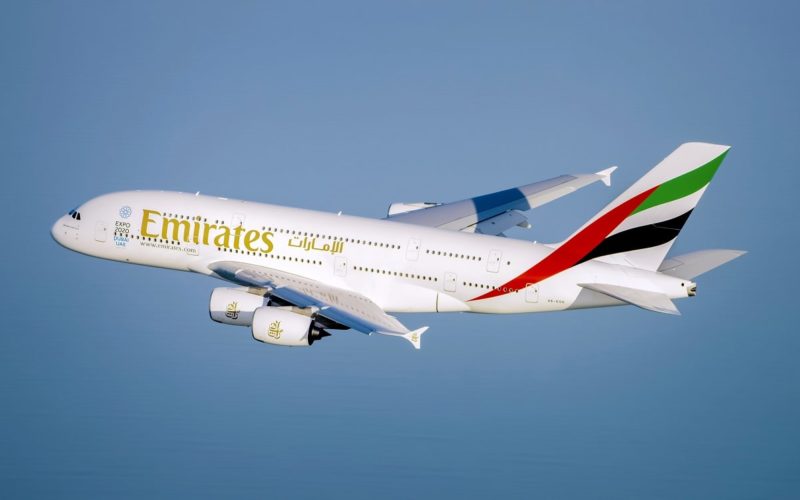The giant A380 aircraft is famous among air travelers. But this superjumbo passenger plane is found to be at the forefront in the airplane casualties of the Coronavirus. As the aviation industry is teetering on the edge of collapse, A380 fleets are disappearing from skies at lightning speed. along with both B747’s and some B777 fleets.
Many Airlines are battling the financial losses as a result of Covid-19 and some are moving away from widebody aircraft in an effort to downsize both capacity and aircraft size. Hub and spoke aircraft and airlines do not appear the way forward in a Covid-19 world. A380, B747 and B777 aircraft are retiring early and smaller twin engine aircraft like the B787, A350 and even B767, B757 are being favored for future international travel.
Many airlines including Qantas, Air France, and Lufthansa, have grounded their fleets of superjumbos. A massive drop in demand for air travel has led many air carriers to reduce the operations for their gigantic fleets.
Airbus A380 – now a victim of the coronavirus pandemic
A380 Airbus made its first flight on 27th April 2005. It took ten years in its development, and after two years, it started its operation as a direct replacement for retiring Boeing 747s. In fact except for the unique double air bridge, the wing span of the A380 was designed to be equivalent to the B747.
A380 is capable of carrying up to 853 passengers as these fleets have a wide cabin with above 500 seats. The aircraft is expensive to operate and that’s why it is close to dismissal after the COVID-19 pandemic.
The reduction in the demand for travel demand is causing many airlines to think twice before operating their superjumbo fleets.
A380 seems to be landing towards its retirement
This Airbus already had its card marked. It was announced earlier in 2019 that this Airbus would stop deliveries in 2021. But the recent COVID-19 outbreak causes extraordinary conditions, and these giant planes are sinking sooner than expected.
According to CNN reports, A380 is popular with air travelers but with record low international passenger numbers they are not financially viable to operate. This is also true for B747 and B777 fleets.
Covid-19 has accelerated the end of both Airbus A380 and other widebody fleets. The whole aviation industry is struggling to adapt to grounded fleets and ultra low demand for air travel.
The airlines are struggling now even to fill their smallest plane. The weak consumer demand, lockdown precautions, and measurements are the reasons to blame. The COVID pandemic would be a loss-maker in the short or medium terms.
Airbus invested about 25 billion euros in the A380 program. Money that Airbus has acknowledged that will not be recouped because of the reduced production life of the airplane.
Also, the plans to set-up a profitable market for airlines may get affected by the COVID-19. Some A380 aircraft have already been scrapped for the spare materials rather than sold to another airline. In fact many of the parts on the A380 are unique to this model and Airbus runs a specific A380 spares pool program to support these operators.
Not only A380, but many other airlines will ground forever due to coronavirus. In March, IATA (International Air transport association) predicted airlines might lose more than 113 billion dollars in sales because of that pandemic. That number is set to increase because of the lack of clarity in the aviation industry and with the increased grounding of airbuses.
What will be the Future of A380 Airbus?
The after life of most passenger aircraft is the cargo market, unfortunately the A380 PAX was never designed to be a heavy cargo airframe. Airbus had intended to build a A380F however this did not eventuate. Although Lufthansa is currently reported to be converting an A380 to cargo it’s suitability for conversion is in question.
Although global disruption caused by the COVID pandemic is predicted to keep airlines demand below for at least two years. According to the industry groups and airlines, high capacity airlines are at the bottom of priority lists.
The impact of the accelerated demise on Airbus jobs needs to emerge clearly. When they announced that production would cease, then CEO Tom Enders said that units dedicated to A380 parts might be reassigned. The Airbus Chief Executive said that “we saw the solid start of this year both industrially and commercially, but we are also seeing the impact of COVID-19 emerging through numbers”.
It is still in talks about where the cut should be made because job losses are becoming common due to the pandemic of COVID-19 effect on Airbus. Though, the engine suppliers already announced the count of 9K positions.
The loss in A380 Revenues
A380 has lost almost 481 million euros at the very start of this year as compared to the profit of 40 million euro in 2019. The revenues of A380 fell by 15% in the first 3 months of 2020 to 10.6 billion.
Last year they delivered 162 airbuses, but they are 40 fewer this year. Another 60 airplanes were ready, but they cannot be delivered due to the pandemic of coronavirus.
Grounded A380 Airbus
The Airbus A380 is maybe the largest victim of COVID-19, as many airlines have grounded this Airbus as the travel demand reduced. Lufthansa was the first company that announced the grounding of A380. It was used primarily for international routes to Asia and North America.
Korean Air has also grounded its entire Airbus A380 fleet according to the Forbes report. It was reported that a Korean air flight attendant with the virus might have worked on 400 seat aircraft between Los Angeles and Seoul.
For now, Qantas is also grounding most of its Airbus A380 fleets. 10 out of 14 are already grounded, and two are undergoing a maintenance process. Right now, only two airbuses are in an operation mode that is on the Sydney to Los Angeles and Singapore to London route.
Airlines are now considering not continuing with A380 as this plane has been overtaken by Airbus A350 XWB and Boeing 787 Dreamliner. This all will lead to less or no production of A380 Airbus in the next year.
China Southern is the only operator of the A380. This airline has struggled for years to fill the routes from the USA west. The Chinese airline would likely utilize the aircraft on domestic routes in China in the future.
However, maybe half of the A380 operators may not fully introduce their A380 again when the travel demands go back to normal.
Yet, time is not over for this Airbus, but its long-term future seems to be shaky in these uncertain times.
![]()




